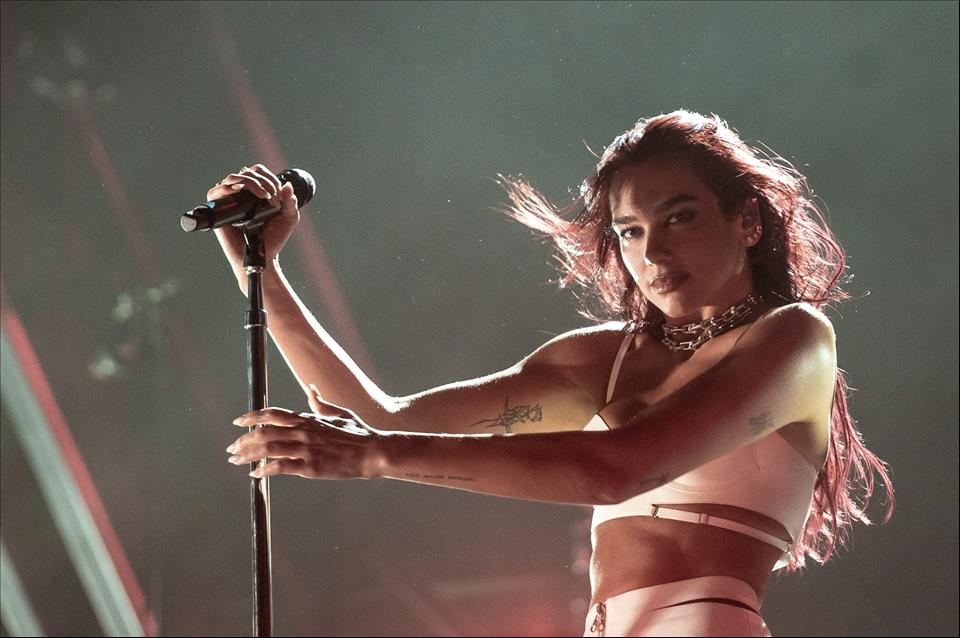
Dua Lipa Is A Poet Too On National Poetry Day, Let's Celebrate The Power Of Words To Move Us
Given their youth, they begin to air archaic ideas about what poetry is: something that's difficult to decipher, hard to write.
Asked to name a poet, their minds often retreat into the historical darkness where they locate Shakespeare. Perhaps a name surfaces from an era a little closer to our own – Emily Dickinson, say, or Sylvia Plath.
It's then I offer them Dua Lipa and Benson Boone, and screen YouTube videos of“New Rules” and“Beautiful Things”.
Poetry originated in oral narrative, after all. Long before Gutenburg invented the printing press, long before the Sumerians and others developed script, humans entertained and educated, connected and comforted one another through the lyrical word.
Whether short, memorised stories exchanged between the poor and uneducated, ancestral endeavours retold at community gatherings, or epics recited for the delectation of royal courts, poetry was global and democratic. It still is.
Poetic celebrityPoetry was also a forum for messaging with a significant reach. Sex, sexuality, love, morality, law, wrongdoing, mutiny ... nothing was taboo for poetic exploration and dissemination.
Yes, even false, imagined or speculative portrayals of the proclivities of the powerful and privileged. Fake news indeed.
Publishing eventually set stories on the page and bound them within book covers. This confined poems and other forms of storytelling to the minds and mouths of the educated. But poetry overcame this challenge through continual development.
In form (sonnet , villanelle , elegy ), music (rhythms, rhyme-schemes, poetic metre), tone (serious, sarcastic, sombre, sensual) and subject matter, it proliferated. More than this, across the centuries it remained accessible because of its ability to keep delivering concise, resonant narratives.
It was this relevancy that allowed poetry to generate the forerunners of celebrity culture. Take the drop-dead-gorgeous, rebellious, brooding and outspoken Lord Byron . Like contemporary rock stars and influencers, he understood how to enthral audiences by self-consciously“performing” a persona through his poems.
Verse in the digital agePortrait of Lord Byron, 1896. Getty Images
Of course, the halcyon Byronic epoch is long gone – isn't it? No. It's 200 years since his death, but the limberness of poetry he fully embraced and showcased endures.
It's there, for instance, in the lyric that modern pop stars employ in all musical genres – rock, rap, hip hop, rhythm and blues, country. It's all poetry.
Nor has it shed those past means of expression and appeal. The in-person performances that elevated Byron to stardom are alive in popular weekly poetry readings starring Aotearoa's best and brightest verse-makers, from north to south.
Similarly, poetry has adapted and found opportunity in the digital age, reinventing itself in local webpages such as Best New Zealand Poems , Poetry Archive and Poetry Foundation , and particularly on TikTok, where short and concise verse very much suits the new media.
Poets now get to bypass the“slush pile” and silence of conventional publishers to reach millions keen for succinct, stimulating writing.
Perhaps inevitably, given the unregulated world of social media, the trend has been accompanied by complaints of plagiarism . As Big Tech evolves, the death knell is being rung for the arts and artists. AI-generated poetry has provided an early warning of the possible philistine future.
AI cannot comprehend the mobility and metamorphosis of poetry. It can only replicate. Getty Images Heart, mind and imagination
It's right, of course, to decry the simulated creation of an art form as traditional and personal as poetry. As an author, I recognise the threats from loss of work, loss of voice, value, royalties and returns. It's a loss, fundamentally, of the unique identity Aotearoa offers the world through its art and artists.
But while I have no faith in the multinational tech titans and their prioritisation of profit over creative integrity and originality, as a writer with a 30-year career, I have – and always will have – faith in the word.
AI can help anyone generate a poem, no doubt. But poetry – that channel for the expressive and emotional – has remained resilient because it is sourced not from the screen but the heart, mind and imagination. To these persistent allies it belongs.
No artificial intelligence will ever experience, let alone truly reflect, that human essence. Nor can it ever comprehend the mobility and metamorphosis of poetry I write of here. It can only replicate.
So, whether it's on National Poetry Day or any other date, try to experience poetry created, crafted and performed by people. Online too. But most of all, in a way no algorithm can match, experience poetry created, crafted and performed by yourself.
Don't overthink it – within you lie the words, meanings, cadences, repetitions and experiences only you can unleash.
National Poetry Day, August 23, will see readings and poetry-themed events throughout Aotearoa New Zealand and overseas. See the calendar for details about your region.

Legal Disclaimer:
MENAFN provides the
information “as is” without warranty of any kind. We do not accept
any responsibility or liability for the accuracy, content, images,
videos, licenses, completeness, legality, or reliability of the information
contained in this article. If you have any complaints or copyright
issues related to this article, kindly contact the provider above.


















Comments
No comment